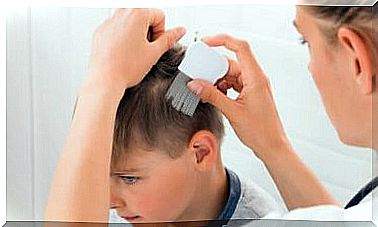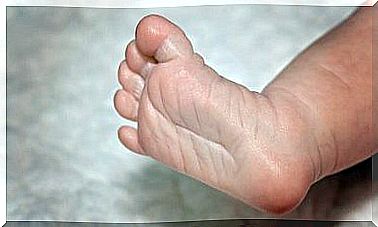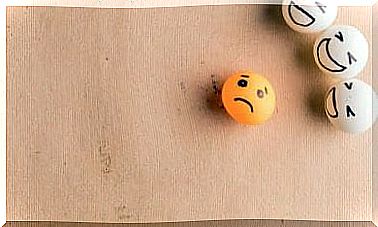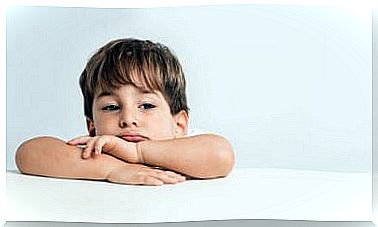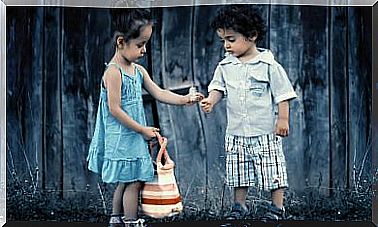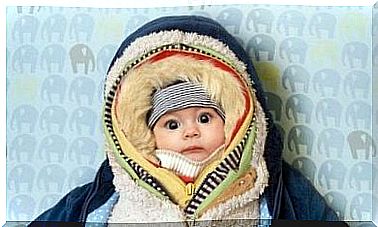How Does Depression Affect The Relationship Between Mother And Child?
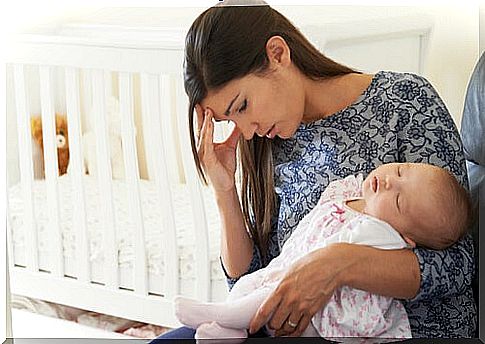
When a woman brings a child into the world, there is a truly magical connection between them. However, this important link can be broken by several factors ; therefore, it is important to know how depression affects the relationship between mother and child, since this is one of the most frequent pathologies in these cases.
Women, after giving birth, experience a roller coaster of emotions that can take them from the height of joy to the deepest sadness in the same day. The causes that can motivate these variations are diverse; therefore, the child is positively or negatively affected by these changes.
Especially in first-time mothers, it is common for fears and frustrations to manifest themselves in the early days of playing their role as parents. They can directly affect the child, as well as their family and social environment.
The important thing when detecting a depressive condition is to seek professional help to prevent it from prolonging and damaging the baby’s development. Even if it happens when the child is a little older, the natural behavior will be to find a way to please the mother, even if it causes her suffering.
How does depression affect the relationship between mother and child?
The English psychoanalyst Donald Winnicott demonstrated important advances in the treatment of depressive conditions in mothers and their effects on their relationship with their children. Interest in studying this pathology in this particular setting increased after seeing a patient and observing the reasons that caused it.
The mother in question reported concern about her child’s weight loss and hid other situations that afflicted her. The reality in the patient’s home was delicate; she suffered abuse from her husband, and the child, being present in this situation, had a lack of appetite.
Although the boy recovered his appetite, the psychologist recommended that the woman receive psychological treatment. In this way, he made her understand how depression affects the relationship between mother and child.

Damage caused by depression in the relationship between mother and child
behavior changes
A mother’s depression can cause a decrease in the delivery of affection to her child. There are several consequences that the lack of emotional delivery of a mother to her child can cause, mainly because of depressive conditions.
Many cases of violent children stem from the fact that at home they do not receive enough affection and there is complete neglect of their needs. Other types of problems that affect mothers cause them to remove affectionate attention to their children from their priority list, without considering the dire consequences of this.
Insecurity
This is one of the most significant effects of how depression affects the relationship between mother and child. The woman, in her role as a mother, is responsible for offering security, tranquility and calm to the child. This gives you a comfort zone and reduces the chances of emotional disturbance.
When the mother finds herself in a depressive condition, her priorities change and she leaves aside the emotional protection she must give to her offspring. This can have consequences for the child throughout their life, such as withdrawing from the social environment, feeling rejected and not having confidence in people.
Changing the natural bond between mother and child
When the mother suffers from depression, she neglects the attention the baby should receive and the bond between them is weakened. The child then cannot establish a similar connection with anyone else; only that woman who harbored her for nine months in her womb has this privilege.
In that case, those needs must be met by someone else, without that magical connection naturally established between mother and child. Your main needs can be met, but it will never be the same coming from a person other than your mother .
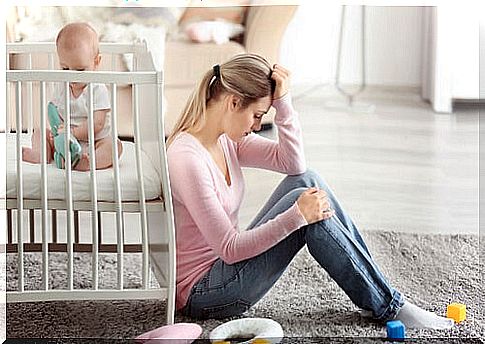
maternal introspection
In this state, the woman is unable to correctly interpret the baby’s signals. Therefore, the sensitivity to your needs decreases considerably. By isolating herself in her own thoughts without paying attention to her surroundings, the mother does not even understand how depression affects the relationship between mother and child.
A depressed mother will have an unstable and unhealthy life and, in addition, will transmit its negative consequences to her child. Assistance is required to overcome this issue as soon as possible as soon as it is detected ; in this way, some of its problematic sequelae can be prevented.

